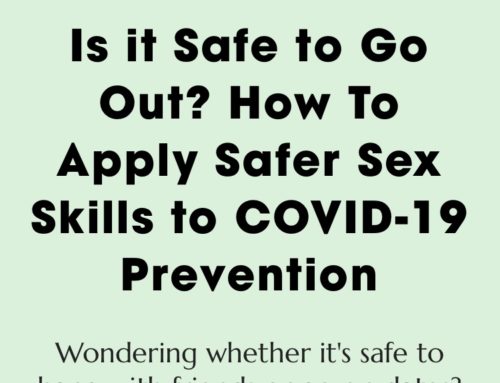Hi Yana,
I recently found out after my 21-year pap smear that I carry HPV (human papillomavirus). It’s incredibly annoying that even though I’ve been tested all my life, a very common STI can still be transferred to me. It was also troubling that after checking a little bit more, HPV can also be transferred with a condom on, so it could have been from any of my sexual partners.
My overall question is, how do I navigate telling the people I’ve already had sex with that I have an STI and that they should probably get tested? It’s extremely awkward but morally I feel an obligation to tell them. I just don’t know how.
Thanks,
STI Dunno What to Say
Dear STI Dunno,
 You’re not alone in your struggle with HPV. Half of all college-aged people contract HPV. HPV is so common, that sexual healthcare providers have called it “a symptom of sexual activity itself” as 75 percent of sexually active people will experience an active HPV infection. You’re one of 20 million people with HPV right now, and, statistically speaking, your past and future lovers may already be in the same boat with you.
You’re not alone in your struggle with HPV. Half of all college-aged people contract HPV. HPV is so common, that sexual healthcare providers have called it “a symptom of sexual activity itself” as 75 percent of sexually active people will experience an active HPV infection. You’re one of 20 million people with HPV right now, and, statistically speaking, your past and future lovers may already be in the same boat with you.
Without the visible symptom of warts (which only some strains of HPV cause) there’s no HPV test for penises. Trickier still, HPV is transmitted through skin-to-skin contact, rather than the familiar fluid-to-fluid transmission of many other STIs/STDs. So, as you’ve found out, though condoms can offer a 70-75 percent protection rate against HPV transmission, they can’t offer full protection as they don’t cover the full genital area. Other protective measures like using dental dams for oral and gloves for manual sex can reduce your HPV risk, but abstaining completely from genital-to-genital contact forever is the only sure way to completely dodge HPV transmission from where you’re standing. In my opinion, a non-sustainable option.
You’re absolutely right that it’s annoying that though you’ve been diligent about getting tested and using condoms, here you are with your Rolodex of past lovers and a positive HPV test. But the reality is that keeping up with your sexual health isn’t just about magically dodging an STI that’s becoming statistically harder and harder to avoid.
Testing doesn’t inherently guard you from transmission but rather equips you to guard others from transmission. Normalizing testing by getting tested, sharing our statuses, and reducing shame about all of it better equips all of us to let our partners know what’s up and to make their own informed decisions about the risks they would like to take with us. Sex is never a risk-free activity. But neither is driving, or eating, or even abstinence, really. Managing risk is a personal choice and begins with status knowledge and disclosure. So your testing rituals aren’t for nothing, STI Dunno, I can assure you of that.
Whatever you do, avoid the shame and blame game for both yourself and your past partners…continue reading…


